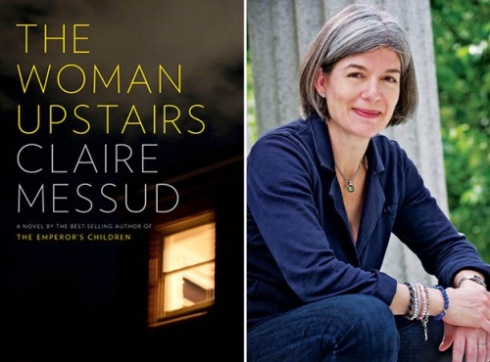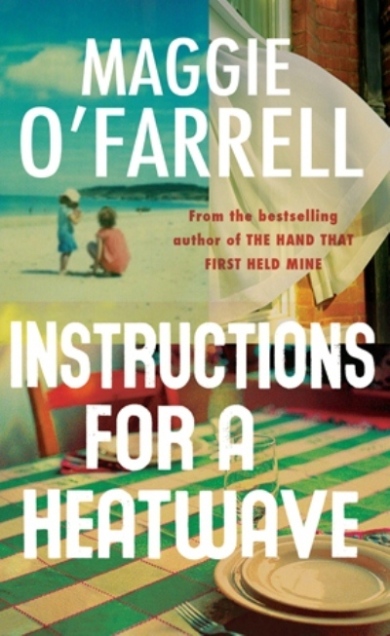The Secret History Donna Tartt
April 4, 2014 at 4:24 pm | Posted in Award winners, Middle Weight Fiction, Popular Fiction, The Secret History | 1 CommentTags: Book Clubs, book review, Book Reviews, bookclub, Bookreviews, good book reviews, Great Reads, popular fiction, recomended reads

It is understandable how Donna Tartt’s ‘The Secret History’ became a long-term bestseller and conquered a place in so many book lovers hearts. The story centered on a group of young bright affluent students at an exclusive Vermont College in the 1980’s roaming wild and burning through money is exceptionally engaging .and compulsively addictive.
The young group is composed of a variety of apparently sympathetic characters Richard who, unlike his peers, is on a scholarship to the exclusive college and is at great pains to conceal his blue-collar roots, twins Camilla and Charles known for their manners and gentle ways, Henry the emergent leader of the group remarkable for his adaptability to changes in circumstance and ability to mix easily with all sorts of people and also Francis and Bunny who enjoy all life has to offer with great self-assurance. What the characters all have in common is that they are all students of the charismatic erudite Professor Julian Morrow who teaches them Classics exclusively to a level of detail and reverence far above the academic norm.
Inspired deeply by their passionate teacher a few members of the group perform a Dionysian rite one night (a rite designed to work the worshiper into a state of ecstasy in order to feel the power of the gods through wine, dancing and often sexual expression) but the rite has truly gross consequences for the group which go on to drive the plot to even wilder and darker places and the death of Bunny Corcoran (whose death is revealed to the reader in the first line of the novel). 
Do not look for redemption, regret or guilty melancholy from this group, as a reader the novel demands that one must think much bigger when it comes to this motley crew and contemplate openly Donna Tartt’s brilliant subtle suggestions that Henry may himself be the devil incarnate and that in this existential world absolutely anything is possible once you have the nerve and stomach for it.
The plot is set in the familiar routines of college life against the rich dripping backdrop of the classical world of Greek and Latin language, prose and poetry. Donna Tartt’s prose is just so accomplished that at times it feels like God himself has lifted the telephone to call you personally and reveal some select mysteries of the world;
‘…there was never any doubt that he (Henry) did not wish to see us in our entirety, or see us, in fact, in anything other that the magnificent roles he had invented for us: genis gratus, corpore glabellus, arte multiscius, et fortuna opulentus – smooth cheeked, soft-skinned, well-educated, and rich. It was his odd blindness, I think, to all problems of a personal nature which made him able at the end to transmute even Bunny’s highly substantive troubles into spiritual ones.’
The novel in haiku; murderous thoughts fly, money and nerve conquer all, but it takes just one
‘The Woman Upstairs’ vs. ‘Instructions for a Heatwave’
November 10, 2013 at 2:59 pm | Posted in Great for Book Clubs, Instructions for a Heatwave, Middle Weight Fiction, The Woman Upstairs | 3 CommentsTags: Book Reviews, bookclub, good book reviews, new fiction
‘The Woman Upstairs’ vs. ‘Instructions for a Heatwave’
I love both Claire Messud and Maggie O’Farrell. They are both accomplished, polished storytellers and professionals of emotionally awakening prose. In 2006 Claire Messud’s ‘The Emperors Children’ moved me in a way no other piece of literature had. And in 2005 I sacrificed much sleep in reading Maggie O’Farrell’s ‘The Distance Between us’.
‘The Woman Upstairs’ deals with a very interesting and perhaps under-explored topic that of a woman’s disillusion with her place in the world and the crushing binds of familial duty.
Women are expected to be good and nice and ‘The Woman Upstairs’ shows this to be a perennial and generation busting expectation even in the 21st Century. But most importantly ‘The Woman Upstairs’ deals with the unapologetic and growing anger a woman feels when she finds the time to think broadly about her life in this context.
Messud’s leading heroine Nora Eldridge is mad as hell when we first meet her;
‘How angry am I? You don’t want to know.’
Nora desired to be a fine artist but was counseled by her parents to become a teacher instead and have a stable career. Familial circumstances then caused her to devote much time to taking care of her terminally ill mother and then her aging father to the detriment of her own life and dreams. These limits in her life caused her to develop feelings of self-doubt and cowardice that prevented her from living fully and without fear.
A new young pupil in Nora’s elementary school brings into her life an exotic and beautiful family of Lebanese origin. True scholars and artists they bring Nora into their glamorous life of culture and freedom. Nora at lasts tastes the life she has always dreamed of but quickly becomes precariously close with each member of the family as they become for her the family she never had.
The prose and plot is not perhaps as captivating as that of ‘The Emperors Children’ but this novel is just as important as it asks in every chapter questions about a woman’s place in the world, it questions the real and unrealistic expectations of a woman and looks at the importance of a woman’s relationship with herself.
Set in London during the heatwave of 1976 ‘Instructions for a Heatwave’ is a novel based around a family of five whose patriarch tells his wife he is popping out for a newspaper and never comes back.
This brings the three adult children back together to their family home as the search for the AWOL father gets underway. In close proximity to each other the children’s own problems and life situations leak out and brew all hot summer long. As we learn about the human problems each adult child faces the novel becomes a great depiction of a real family facing down difficult marriages, lost dreams, unplanned pregnancies and the worst parts of their personalities hotting up under the pressure of the heatwave.
The reader never assumes one member of the family could have a known explanation for the fathers leaving or that the intimacy of this secret could bring the family closer together. One of Maggie O’Farrell’s greatest traits as an author is to find intimacy in unusual places; in explosive secrets, in geographical distances or in different life choices and how they can help one to appreciate another. Set against the raging summer heat the secrets of the novel cook to boiling point and perhaps like a full moon the characters are unusually affected by the unrelenting high temperature of the summer of 1976.
Maggie O’Farrell’s novels love to suggest that families and marriages are not always as they seem and that secrets may often be at their best when revealed. This latest novel does just that and is a delicious and rapturous addition to her catalogue.
Haiku; The woman upstairs, finds herself in the heatwave, with no more secrets
Freedom comes in Time
April 14, 2011 at 3:54 pm | Posted in Award Nominated, Freedom, Great for Book Clubs, Literary Fiction | Leave a commentTags: Book Reviews, bookclub, Books
Jonathan Franzen ‘Freedom’ Macmillan, August 2010
The American middle class has been deconstructed and it is fantastic. Believe what you hear about this book Jonathan Franzen’s ‘Freedom’ is a truly great state-of-the-nation, deconstruction of our times, polemic epic of a novel.
The story explores the public and private life of a middle class american family ‘the Berglunds’ and is electrified with Franzen’s own interest in socio cultural issues such as the post 9/11 economy, nature conservation and overpopulation. This gives the novel it’s serious literary value and the reason why I believe it is becoming so acclaimed.
When the novel opens the parents in this family saga aren’t doing well. She is drinking, he is working for a corrupt coal company and they have greatly drifted apart. Each family member has ideas of reality, entitlement, love, morality and general life expectations that mostly are disappointed. A lot of novels look at these ideas too but Franzen couples them with global issues, hot american topics and ethical conflicts (at one stage father and son, Frank and Joey, become embroiled with a Haliburten like company in a very ill-advised financial pursuit) and these coupled ideas are the tools Franzen uses to dig at and explore middle america with. The socio-cultural aspects of this novel work to create a swinging pendulum of doom that moves in time with the family’s own demise gaining weight with every swing it is a fantastic literary technique reminiscent of Ian McEwan’s ‘Solar’.
This family are written in 3D every dimension of them is soaked in detail and their humanity lend’s the story its page turning compulsion. Between them they are vain, self-pitying, passive aggressive, disloyal, unfaithful, uncommunicative, hungry for love, sexually promiscuous, mercenary, angry and vulnerable. Franzen is a natural writer in showing how they are all these things only in their struggle to find meaning in a cheapened world and the reason that readers like them so much is because they are struggling. They know something is very wrong the world which they don’t accept and all of them are on the quest for transcendence in their own individual ways.
 With this novel Franzen is the first author to appear on the cover of Time magazine since Stephen King did ten years ago. This is one of the most hyped novels in a long time. It is a fantastically well crafted story but so is Curtis Sittenfeld’s ‘American Wife’ and so is Ian McEwan’s ‘Solar’. It is unfortunate that this novel has become a little overshadowed by the hype and a precocious side to the success of this novel is now showing with the New York Times describing Franzen’s own comparisons of ‘Freedom’ to ‘War and Peace’ as ‘laughably conceited’.
With this novel Franzen is the first author to appear on the cover of Time magazine since Stephen King did ten years ago. This is one of the most hyped novels in a long time. It is a fantastically well crafted story but so is Curtis Sittenfeld’s ‘American Wife’ and so is Ian McEwan’s ‘Solar’. It is unfortunate that this novel has become a little overshadowed by the hype and a precocious side to the success of this novel is now showing with the New York Times describing Franzen’s own comparisons of ‘Freedom’ to ‘War and Peace’ as ‘laughably conceited’.
An unbelievably well executed novel in good company with Ian McEwan, Don Delillo, Damon Galgut and Curtis Sittenfeld but I haven’t been carried away with the hype to value it as anything more than this.
Haiku; Will ‘Freedom’ now be the new book club selection for Oprah Winfrey?
Bookclubs look at the characters…
March 23, 2011 at 2:12 pm | Posted in Book Club Ideas | Leave a commentTags: Book Reviews, bookclub
1. Characterisation- is it done well? The more a reader knows a character the increased chance for success there is for character and plot development.
2. Many novels now focus on characters rather than plot developments as a literary technique to drive novels – does the novel you’re reading do this?
3. If a character is underdeveloped the author may lean too heavily on stereotypes and archetypes, this is lazy writing, if a book is not holding your interest there is probably a reason for this, examine the characters.
4. A rich character can be iconic and by virtue can refer to a different era, location, ideology, way of life, value system etc.
5. How do you enjoy getting to know a character by being told through the narrative what they are like or seeing how a character behaves and develops in different situations?
Read a bit more into it……..
March 18, 2011 at 4:23 pm | Posted in Book Club Ideas | Leave a commentTags: Book Clubs, bookclub
Getting started; five things to look for in a book
2. Always ask yourself if a story is interesting or saying something new.
3. ‘Show don’t tell writing’. Great authors sentences won’t tell you anything but will evoke, implicate, imply, hint at, stimulate and suggest.
4. Look at how the plot being moved along. Is it moved by the characters, by the narrative, by the writing style or something else….and does this work?
5. Is there a central theme? If there is take a look at it and see if it is strong enough to carry the whole story? Is it sufficiently researched?
Blog at WordPress.com.
Entries and comments feeds.










